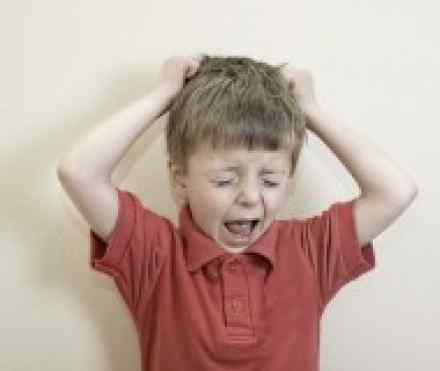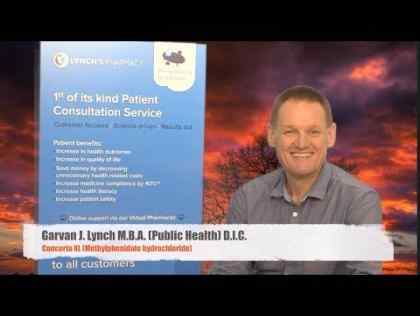
What is it?
- Attention-deficit/hyperactivity disorder (ADHD) is a chronic condition that affects millions of children and often persists into adulthood. Problems associated with ADHD include inattention and hyperactive, impulsive behavior. Children with ADHD may struggle with low self-esteem, troubled relationships and poor performance in school.
- While treatment won't cure ADHD, it can help a great deal with symptoms. Treatment typically involves psychological counseling, medications or both.
- A diagnosis of ADHD can be scary, and symptoms can be a challenge for parents and children alike. However, treatment can make a big difference, and the majority of children with ADHD grow up to be vibrant, active and successful adults.
Symptoms
- ADHD has been called attention-deficit disorder (ADD) and hyperactivity.
Signs and symptoms of inattention may include:
- Often fails to pay close attention to details or makes careless mistakes in schoolwork or other activities
- Often has trouble sustaining attention during tasks or play
- Seems not to listen even when spoken to directly
- Has difficulty following through on instructions and often fails to finish schoolwork, chores or other tasks
- Often has problems organizing tasks or activities
- Avoids or dislikes tasks that require sustained mental effort, such as schoolwork or homework
- Frequently loses needed items, such as books, pencils, toys or tools
- Can be easily distracted
- Often forgetful
Signs and symptoms of hyperactive and impulsive behavior may include:
- Fidgets or squirms frequently
- Often leaves his or her seat in the classroom or in other situations when remaining seated is expected
- Often runs or climbs excessively when it's not appropriate or, if an adolescent, might constantly feel restless
- Frequently has difficulty playing quietly
- Always seems on the go
- Talks excessively
- Blurts out the answers before questions have been completely asked
- Frequently has difficulty waiting for his or her turn
- Often interrupts or intrudes on others' conversations or games
ADHD behaviors can be different in boys and girls.
- Boys are more likely to be hyperactive, whereas girls tend to be inattentive.
- Girls who have trouble paying attention often daydream, but inattentive boys are more likely to play or fiddle aimlessly.
- Boys tend to be less compliant with teachers and other adults, so their behavior is often more conspicuous.
You may suspect your child's behavior is caused by ADHD if you notice consistently inattentive or hyperactive, impulsive behavior that:
- Lasts more than six months
- Occurs in more than just one setting (typically at home and at school)
- Regularly disrupts school, play and other daily activities
- Causes problems in relationships with adults and other children
Normal behavior vs. ADHD
- Most healthy children are inattentive, hyperactive or impulsive at one time or another. For instance, parents may worry that a 3-year-old who can't listen to a story from beginning to end may have ADHD. But preschoolers normally have a short attention span and aren't able to stick with one activity for long. Even in older children and adolescents, attention span often depends on the level of interest. Most teenagers can listen to music or talk to their friends for hours but may be a lot less focused about homework.
- The same is true of hyperactivity. Young children are naturally energetic — they often wear their parents out long before they're tired. And they may become even more active when they're tired, hungry, anxious or in a new environment. In addition, some children just naturally have a higher activity level than do others. Children should never be classified as having ADHD just because they're different from their friends or siblings.
- Children who have problems in school but get along well at home or with friends are not considered to have ADHD. The same is true of children who are hyperactive or inattentive only at home but whose schoolwork and friendships aren't affected by their behavior.
What causes ADHD?
Parents may blame themselves when a child is diagnosed with ADHD, but researchers increasingly believe that causes have more to do with inherited traits than parenting choices. At the same time, certain environmental factors may contribute to or worsen a child's behavior. Although there's still a lot that isn't known about ADHD, researchers have identified several factors that may play a role:
- Altered brain function and anatomy. While the exact cause of ADHD remains a mystery, brain scans have revealed important differences in the structure and brain activity of people with ADHD. For example, there appears to be less activity in the areas of the brain that control activity and attention.
- Heredity. ADHD tends to run in families. About one in four children with ADHD have at least one relative with the disorder.
- Maternal smoking, drug use and exposure to toxins. Pregnant women who smoke are at increased risk of having children with ADHD. And alcohol or drug abuse during pregnancy may reduce activity of the nerve cells (neurons) that produce neurotransmitters. Pregnant women who are exposed to environmental poisons, such as polychlorinated biphenyls (PCBs), also may be more likely to have children with symptoms of ADHD. PCBs are industrial chemicals that were widely used up until the 1970s.
- Childhood exposure to environmental toxins. Preschool children exposed to certain toxins are at increased risk of developmental and behavioral problems. Exposure to lead, which is found mainly in paint and pipes in older buildings, has been linked to disruptive and even violent behavior and to a short attention span. Exposure to PCBs in infancy also may increase a child's risk of developing ADHD.
Risk factors
- Maternal exposure to toxins
- Smoking, drinking alcohol or using drugs during pregnancy
- A family history of ADHD or certain other behavioral and mood disorders
- Premature birth
ADHD frequently occurs along with certain other conditions, including:
- Hyperthyroidism
- Having a learning disability or being a gifted learner
- Oppositional defiant disorder
How is ADHD diagnosed
- No single test for ADHD exists, which can make the disorder difficult to diagnose. Gathering as much information as possible about your child is the best way to get an accurate diagnosis and rule out other possible causes of your child's symptoms.
- An appointment to check for ADHD usually begins with a complete medical exam and a number of questions about your child's health, medical problems, symptoms, and issues that occur at school and at home.
- Children diagnosed with ADHD exhibit symptoms over a long period of time and have particular trouble in stressful, demanding situations or in activities that require sustained attention, such as reading, doing math problems or playing board games.
- Most doctors believe that a child shouldn't receive a diagnosis of ADHD unless the core symptoms of ADHD start early in life and create significant problems at home and at school on an ongoing basis.
Treatments
Standard treatments for ADHD in children include medications and counseling. Other treatments to ease ADHD symptoms include special accommodations in the classroom, and family and community support.
Medicine
Currently, stimulant drugs (psychostimulants) and the nonstimulant medication atomoxetine (Strattera) are the most commonly prescribed medications for treating ADHD.
Stimulant medications for ADHD include:
- Methylphenidate (Ritalin)
- Dextroamphetamine-amphetamine
- Dextroamphetamine
Although scientists don't understand exactly why these drugs work, stimulants appear to boost and balance levels of the brain chemicals called neurotransmitters. These ADHD medications help improve the core signs and symptoms of inattention, impulsivity and hyperactivity — sometimes dramatically. However, effects of the drugs wear off quickly. Additionally, the right dose varies from child to child, so it may take some time in the beginning to find the correct dose.
Other medications used to treat ADHD include:
- Antidepressants. These medications are generally used in children who don't respond to stimulants or atomoxetine or have a mood disorder as well as ADHD.
- Clonidine and guanfacine. These are high blood pressure drugs shown to help with ADHD symptoms. They may be prescribed to reduce tics or insomnia caused by other ADHD medications, or to treat aggression caused by ADHD.
ADHD counseling and therapy
Children with ADHD often benefit from counseling or behavior therapy, which may be provided by a psychiatrist, psychologist, social worker or other mental health care professional. Some children with ADHD may also have other conditions such as anxiety disorder or depression. In these cases, counseling can help both ADHD and the coexisting problem.
Lifestyle solutions:
Because ADHD is a complex disorder and each person with ADHD is unique, it's hard to make recommendations that are right for every child. But some of the following suggestions may help:
Children at home
- Show your child lots of affection
- Be patient
- Keep things in perspective
- Take time to enjoy your child
- Try to keep a regular schedule for meals, naps and bedtime
- Make sure your child is rested
- Identify difficult situations
- Use timeouts or the loss of a privilege to discipline your child
- Work on organization
- Find ways to improve your child's self-esteem and sense of discipline
- Use simple words and demonstrate when giving your child directions
- Take a break yourself
Children in school
- Ask about school programs. Take advantage of any special programs your school may have for children with ADHD. As with other disabilities, schools are required by law to have a program in place to make sure children who have a disability that interferes with learning are getting the support they need.
- Talk to your child's teachers. Stay in close communication with your child's teachers, and support their efforts to help your child in the classroom. Be sure teachers closely monitor your child's work, provide positive feedback, and are flexible and patient. Ask that they be very clear about their instructions and expectations.
- Ask about having your child use a computer in the classroom. Children with ADHD often have trouble with handwriting and can greatly benefit from using a computer or a typewriter.
Coping
- Caring for a child with ADHD can be challenging for the whole family. Parents may be hurt by their child's behavior as well as by the way other people respond to it. And the stress of dealing with ADHD can lead to marital stress. These problems may be compounded by the financial burden that ADHD can place on families.
- Siblings of a child with ADHD also may have special difficulties. They can be affected by a brother or sister who is demanding or aggressive, and they may also receive less attention because the child with ADHD requires so much of a parent's time.
Resources
- There are no easy answers for struggling families, but many resources are available that may help. Parents can get advice on raising a child with ADHD from a social worker or other mental health care professional or from a support group. Support groups don't appeal to everyone, but they often can provide excellent information about coping with ADHD from people who know.
- There also are excellent books and guides for both parents and teachers, and Internet sites dealing exclusively with ADHD.
Techniques for coping
- Many parents notice patterns in their child's behavior as well as in their own responses to that behavior. For instance, your child might throw a tantrum every night before dinner, and you might routinely give him or her a snack so that you can finish preparing the meal in peace. Although you don't mean to, you end up encouraging your child's behavior. Both you and your child need to act differently. But substituting new habits for old ones isn't easy — it takes real awareness and a lot of hard work. It's important to have realistic expectations and not ask more of your child than is physically or mentally possible. Set small goals for both yourself and your child and don't try to make a lot of changes all at once.
References:
http://www.helpguide.org/mental/adhd_add_signs_symptoms.htm
http://en.wikipedia.org/wiki/Attention_deficit_hyperactivity_disorder
http://www.webmd.com/add-adhd/default.htm
http://www.nhs.uk/Conditions/Attention-deficit-hyperactivity-disorder/Pages/Introduction.aspx
http://www.cdc.gov/ncbddd/adhd/
http://www.chadd.orghttp://www.mayoclinic.com/health/adhd/DS00275



